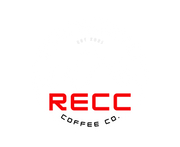
Ranger Essentials Black Hawk Single Origin Fair Trade Organic Dark Roast Guatemalan Coffee (2 lb. bag)
Ranger Essentials Black Hawk is a Single Origin Fair Trade Organic Dark Roast Guatemalan Coffee (2 lb. bag)
Roast: Dark
Origin: Guatemala
Process: Washed
Notes: Honeycrisp apple, nutmeg, blueberry, caramel, creamy body
Note: Comes in whole bean only.
Our devotion to small-batch coffee and our steadfast pledge to provide the freshest roasts are reflected in our unique approach. We prioritize the swift transfer of freshly roasted beans directly into the bags, resulting in roasting on demand. This exceptional process might entail a slightly longer preparation time in contrast to other companies that supply their roasts to big-box retailers, where their coffee can linger on the shelf for anywhere from 90 to 180 days.
BACKSTORY: "BLACK HAWK"
"The Battle of Mogadishu (Somali: Maalintii Rangers, lit. 'Day of the Rangers'), also known as the Black Hawk Down incident, was part of Operation Gothic Serpent. It was fought on 3–4 October 1993, in Mogadishu, Somalia, between forces of the United States—supported by UNOSOM II—against the forces of the Somali National Alliance (SNA) and citizens of south Mogadishu. The battle was part of the broader Somali Civil War that had begun in 1991. The United Nations had initially become involved to provide food aid to alleviate starvation in the south of the country, but in the months preceding the battle, had shifted the mission to establishing democracy and restoring a central government."
"Seven months after the deployment of U.S. troops to Somalia, on June 5, 1993, the U.N. would suffer the worst loss of its peacekeepers in decades when the Pakistani contingent was attacked while inspecting an SNA weapons storage site. Mohammed Farah Aidid, head of the SNA, would become a fugitive after UNOSOM II blamed his faction for the incident and a hunt for him would begin that would characterize most of the U.N. intervention up until the Battle of Mogadishu. As part of the campaign to capture Aidid, U.S. forces in Mogadishu launched the Abdi House raid, on July 12, 1993, resulting in the death of many elders and prominent members of Aidid's clan, the Habr Gidr. The raid would lead many Mogadishu residents to join the fight against UNOSOM II forces and it would also lead Aidid and the Somali National Alliance, to deliberately attack American personnel for the first time on August 8, 1993, which would, in turn, lead President Clinton to dispatch the Task Force Ranger to capture Aidid."
"On October 3, 1993, US forces planned to seize two of Aidid's high-ranking lieutenants during a meeting deep in the city. The raid was only intended to last an hour but morphed into an overnight standoff and rescue operation extending into the daylight hours of the next day. While the goal of the operation was achieved, it was a pyrrhic victory and spiraled into the deadly Battle of Mogadishu. As the operation was ongoing, Somali forces shot down three American Sikorsky UH-60 Black Hawk helicopters using RPG-7s, with two crashing deep in hostile territory. A desperate defense of the two downed helicopters began and fighting lasted through the night to defend the survivors of the crashes. In the morning, a UNOSOM II armored convoy fought their way to the besieged soldiers and withdrew, incurring further casualties but eventually rescuing the survivors."
"At the time, the battle caused the most significant loss of U.S. troops since the Vietnam War. Casualties included 18 dead American soldiers and 73 wounded, with Malaysian forces suffering one death and seven wounded, and Pakistani forces suffering one death and two injuries.[citation needed] Owing to the dense urban character of the battle, estimates of Somali casualties greatly vary - with most estimates set between 315 and 2,000 Somali casualties, including civilians."
"In the aftermath of the battle, dead American soldiers were dragged through the streets of Mogadishu by enraged Somalis, an act which was broadcast to public outcry on American television. The battle shifted American foreign policy and it eventually led to the pullout of the U.N. mission in 1995. Fear of a repeat of the battle was the reason for America's reluctance to increase its involvement in Somalia and other regions. Some scholars believe that it was a major factor that influenced the Clinton administration's decision not to intervene in the Rwandan genocide, and it has commonly been referred to as "Somalia Syndrome."
Other uses:
"Black Hawk is also the name of the Sikorsky UH-60 Black Hawk is a four-blade, twin-engine, medium-lift utility military helicopter manufactured by Sikorsky Aircraft. Sikorsky submitted the S-70 design for the United States Army's Utility Tactical Transport Aircraft System (UTTAS) competition in 1972.
"Named after the Native American war leader Black Hawk, the UH-60A entered service with the U.S. Army in 1979, to replace the Bell UH-1 Iroquois as the Army's tactical transport helicopter."
"This was followed by the fielding of electronic warfare and special operations variants of the Black Hawk. Improved UH-60L and UH-60M utility variants have also been developed. Modified versions have also been developed for the U.S. Navy, Air Force, and Coast Guard. In addition to U.S. Army use, the UH-60 family has been exported to several nations. Black Hawks have served in combat during conflicts in Grenada, Panama, Iraq, Somalia, the Balkans, Afghanistan, and other areas in the Middle East."
References:
https://en.wikipedia.org/wiki/Battle_of_Mogadishu_(1993)
